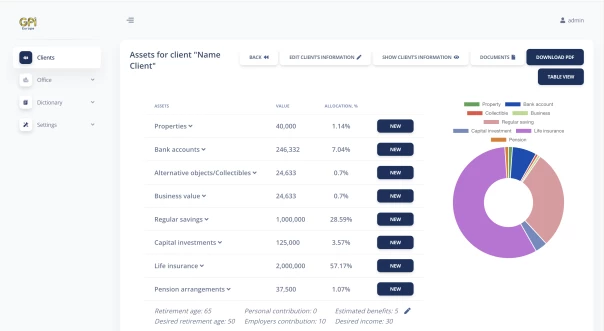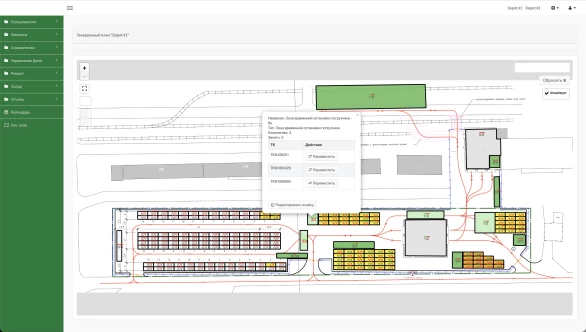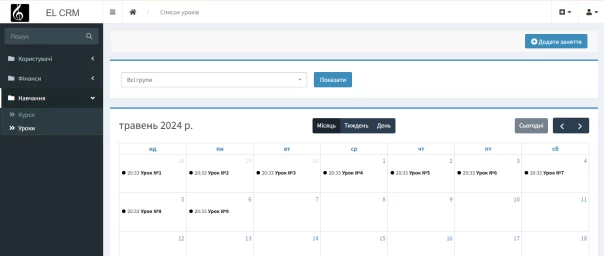Every page that opens in your browser is loaded from another computer - a server. In this article, we will describe what a server is and what it is used for.
Where do web projects live?
To make your website or store work the same way as all other projects usually do, you need to host it on a server (a regular computer, but with more power) that has direct access to the Internet. Nowadays, there are companies that provide such services - hosting providers. Hosting providers have large data centers that house many servers. Data centers are connected to the Internet via fiber-optic cables and support very high data transfer speeds. Their main business is to provide server rental services, and you can use them.
There are usually several options for hosting a web project with a provider:
- a website hosting service is a specialized resource where you can host a single website;
you have the possibility of some configuration of such a server, but not all; - to order a virtual server. A virtual server is like a regular computer, but created by
software. "Inside" such a server, everything looks the same as in a physical one, so there
is no global difference between them. Virtual servers vary in the number of processors,
the amount of RAM, and the size of the hard disk; you can choose the right one for your
needs; - or you can order the deployment of a physical server or several that are built at your
complete disposal.
Then you install your project on one of the hosting options and configure it.
How does the browser realize which server to visit to display my page?
Every computer on the World Wide Web has a unique IP address. For example, the main search page of google.com has an IP address of 142.250.74.174. But you're not asking for an IP, you're asking for google.com.
To request a name instead of numbers that are hard to remember, you need to buy a domain name. Next, you need to bind this name to your IP, and after that, when you request it, the browser will understand which server to ask. In reality, this process is a bit more complicated, but this is what happens in the end.
How to choose?
We have figured out what to do and how everything works. Now let's look at a few cases.
Nowadays, there are a lot of hosting providers. They differ, of course, in prices, services, level of support, and ease of use. During our work, we have managed to work with many hosting providers, and below are some tips.
I want Amazon AWS because it's cool
If you have heard or seen your competitors using Amazon AWS to host a project, it does not mean that you need to also host your project on Amazon AWS. The point of Amazon AWS is that you can conveniently organize your server farm, turn on and off, add new servers, and remove unnecessary servers automatically depending on the load. For example, you need more servers during peak hours and fewer at night. Traditional hosting won't give you this flexibility, but you don't need it for a simple informational website, either. That's why Amazon AWS and other cloud technologies should be used when you need them, and for a simple information website, regular hosting will be enough. Moreover, Amazon AWS will be expensive.
Is a virtual server better than regular hosting?
A virtual server is required for projects that require special fine tuning that cannot be done on a regular hosting. It is better suited for CRM or ERP systems or for large stores. But if you have a simple information website or a small store, then there is no need for a virtual server, just hosting will be enough.
Hosting providers offer the possibility to automatically configure a domain name and link it to the hosting or automatically create backups of the site, so this option may be most convenient for you.
If the physical server is as fast as possible, is it better to use it?
A physical server is the most powerful hosting option, but it costs a lot of money. In addition, maintenance usually does not take any responsibility for the processes on such servers, so you will need an administrator to configure everything on it.
If your project doesn't require a powerful processor or a lot of RAM to cover a high load, then a physical server is not for you. Can you limit yourself to a virtual server, or will hosting be enough?
In our work, we have dealt with various hosting, servers, and cloud technologies. We have experience in using them, know the pros and cons of each approach, and can advise on each of them. If you need a consultation, you can write to us through the feedback form or use the contact page, which has more communication options.

















